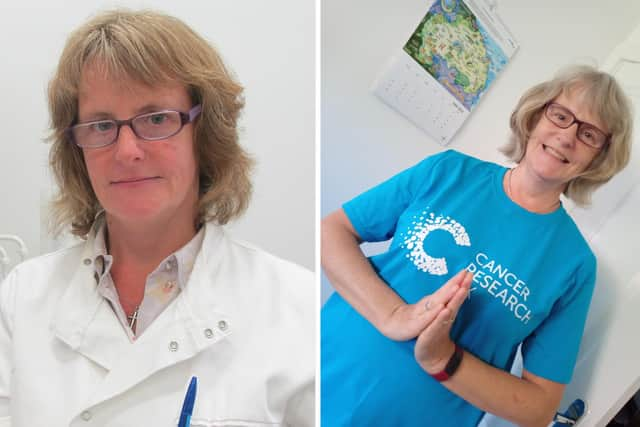Skin cancer survivor supporting sun safety drive
and live on Freeview channel 276
Dr Elaine Willmore, who lives in Morpeth, was successfully treated for melanoma skin cancer in 2004 after noticing that a mole had started to itch.
And the 58-year-old, who is a cancer researcher, is keen to raise awareness as latest figures revealed around 940 people in the North East are diagnosed with melanoma – the most serious form of skin cancer – each year.
Advertisement
Hide AdAdvertisement
Hide AdElaine has joined forces with partners Cancer Research UK and NIVEA Sun, which are offering the key ‘seek shade, cover up with clothing and apply sunscreen’ advice to help people protect their skin from the sun’s rays.


The senior research associate at the Cancer Research UK Drug Discovery Unit at Newcastle University said it is important for people to think about their sun habits and take precautions because getting sunburned increases your chance of getting skin cancer and the effects of sunburn can materialise a lot later.
She added: “Sometimes it takes a long time for the changes to start to turn into cancer. What I try to do is reduce the risks.
“The best advice for everybody is to spend time in the shade, cover up and to use sunscreen and – if you really do want to have a little bit of a glow – use fake tan.”
Advertisement
Hide AdAdvertisement
Hide AdElaine said that back in 2004, spotting the changes and seeking help quickly were vital in preventing the cancer that she had from spreading.
Shortly after the mole was removed, she was due to travel to the USA to attend a major cancer research conference.
She was given the all-clear to fly and made the trip, but was then asked to cut short her stay and hurry home to prepare for surgery.
“I had to have a lot of follow-up checks to make sure everything was OK and that went on for five years when I was given the all clear, which is what everyone wants to hear,” she said.
Elaine added that her experience showed the importance of having any skin changes checked by your GP as soon as possible and not to be concerned about raising a false alarm.